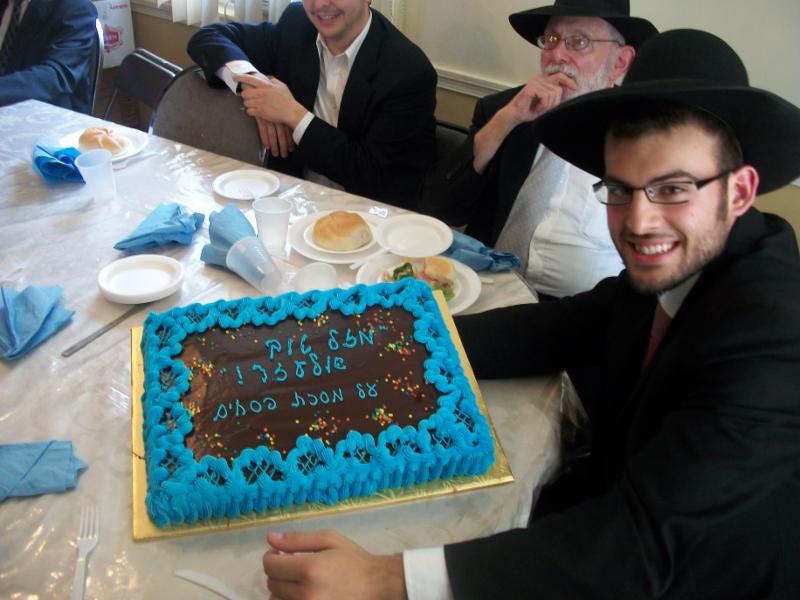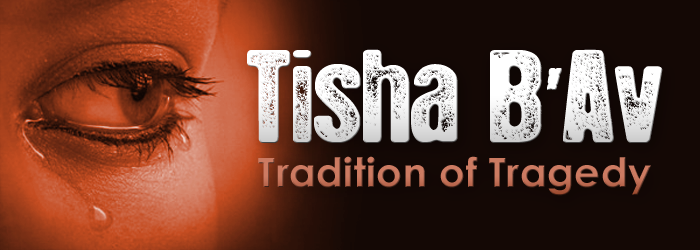| This article was constructed with the help of either writings, lectures or shiurim of Rabbi’s Jay Shapiro, Yossi Bilus |
   YOU BE THE JUDGE: This story occurred in Israel. It makes sense that it happened there, for only a Jewish mind can be so creative: YOU BE THE JUDGE: This story occurred in Israel. It makes sense that it happened there, for only a Jewish mind can be so creative:A man’s home is his castle and when he leaves it, he has to have the proper guards to protect it. After all, a man has to leave his place of residence, at times for an extended period. The word vacation means to vacate ones premises. Man needs to change his environment; he has to press the refresh button from time to time.
One individual did just that; took his family on a long awaited vacation, which they had all been anticipating for a while. Before departing, he went to his trusted neighbor with the keys to the house and asked him to watch the house and not to lend out the key to anyone.
A few days later, the neighbor received a knock on the door. He walked out and saw a truck and two big-muscled men waiting by his neighbor’s door with a new couch. A third person, who seemed to be the spokesman, seemed a bit agitated and impatient, complaining: “No one’s home and we have a busy schedule. If we can’t get in we’re just going to leave it outside”. The neighbor knew if that would happen, the couch would be ruined, as the rainy season was just beginning. He immediately tried to get in touch with the owner, but to no avail. Rationalizing that his friend wouldn’t want to see the couch destroyed, he succumbed to their demands and let them in. He was very careful when they entered and watched them like a hawk. He carefully locked the house after they placed the couch in the living room.
A few hours later there was another knock on the door. It was the same, frustrated delivery man. He said, “we made a mistake and delivered the couch to the wrong person. We need to take it back and deliver it to the right party”. Again, the neighbor opened the door and watched carefully as they carried the couch out of the house.
A few weeks later, back from his vacation, the neighbor frantically knocked on his friend’s door. “My house was ransacked, all my valuables are gone,” he screamed! “Did you allow anyone into our home?” Surprised, to say the least, the house watcher told all about the couch incident. Defending himself, he said it was highly unlikely that anything was taken under his watchful eye. Boy was he wrong! It was learned later, that when the men delivered the couch, they hid someone inside, who stole all the jewelry and valuables, during the several hours that he was in the house, alone. The delivery men came back for him; he was concealed once again inside the couch accompanied with the house fortune.
The question is asked to th
 e reader, the judge of this case: Was the neighbor negligent or was this an unavoidable mishap? Did he dutifully protect the house? Is it his fault he was conned? He just wanted to help his neighbor and prevent him from losing a brand new couch! Plus, shouldn’t he be judged more leniently, since he was a shomer chinam who watches something for no pay? How literally do you take the owners words: DO NOT LET ANYONE INTO MY HOUSE…… NO MATTER WHAT! Was that mandate violated? There are always exceptions to the rules. Is monetary loss considered a valid exception? e reader, the judge of this case: Was the neighbor negligent or was this an unavoidable mishap? Did he dutifully protect the house? Is it his fault he was conned? He just wanted to help his neighbor and prevent him from losing a brand new couch! Plus, shouldn’t he be judged more leniently, since he was a shomer chinam who watches something for no pay? How literally do you take the owners words: DO NOT LET ANYONE INTO MY HOUSE…… NO MATTER WHAT! Was that mandate violated? There are always exceptions to the rules. Is monetary loss considered a valid exception?This is the scenario presented to you, the judge. In this week’s parsha, we are introduced to the concept of judges. In our holy scripture, there are many prerequisites for becoming a judge. First and foremost is the importance of being “G-d fearing,” which is a major factor in being successful at that position.
There was a very sad story that occurred after World War Two. A woman came to a big rabbi wanting to marry again and stated that her first husband had perished in the death camps. She showed evidence and brought eye witnesses to her claim. After hearing what the woman presented, the rabbi declared the woman a widow and permitted her to remarry.
Years later, low and behold, the first husband showed up at her door. She, living in America, wife of another husband with a number of children from him, was horrified. Her children were mamzerim!!
She went to Rabbi Moshe Feinstein, the highest ranking, Jewish judge at the time in the United States, telling her story about how the prominent rabbi gave her permission to remarry. Rabbi Moshe heard her story and when she was finished, he seemed confused, so he asked her to repeat it. She then repeated the story a second time and again the rav seemed a bit confused and asked to repeat a third time.
After the third repetition, astonishingly, the woman broke down crying and confessed she never received approval to marry again. She fabricated much of her meeting with the prominent rabbi who supposedly gave her permission.
Rabbi Moshe’s students asked why he had asked the woman to repeat the story so many times. Rav Moshe said, “it didn’t make sense! This Rabbi is a G-d fearing Jew and would never make a mistake like that. G-d would not let him.”
There is something very deep in Rav Moshe’s statement that “G-d would not allow that.” Since when does G-d interfere with the judgements of rabbis? What about freedom of choice? There is a Psalm that we say every Tuesday morning at the end of the morning prayers (Shacharit). In Psalm #82 it mentions “B’ADAT KEL,” in the Divine assembly. Judges who seek truth and justice are the Devine assembly, because they represent G-d’s justice on earth. As the result of their sincerity, G-d Himself penetrates into their hearts-B’KEREV ELOKIM, in the midst of judges -to assure them of reaching a just verdict” (Ashlich-Artscroll).
G-d goes beyond the usual energy that he infuses in an individual. He assures the case at hand, by getting involved in the decision making by incorporating a sixth sense, into the judge. Another example of G-d’s involvement in judging, occurred after Avraham’s circumcision. The Master of the Universe came to visit Avraham, who in pain, tried to stand up out of KAVOD- respect. G-d, as a reward, said, “you, Avraham, stood up for me, for you felt it was the correct thing to do. When the time comes, as you (your descendants) sit and judge, I’ll stand during the judgment.” In other words, you stand up for whats right and I’ll stand up for what’s right, assuring a correct verdict.
 There are many cases where we see this 6th sense occur, where we are helped by the Divine: A complaint came before a rabbi that an individual owed $10,000. Rueben claimed Shimon owed him $10,000 and he had a document to prove it. The document was presented to the Rabbi with Shimon’s signature on the bottom right of the page and written on it, was “I took $10,000 from Rueben with the promise to pay him back.” The document was presented to Shimon who said that indeed, this is my signature, however I never took a loan or wrote such a promise. The Rabbi was suspect of the document and did not believe Rueben. An intuition that something was fishy was his thinking in the case. He asked that Rueben leave the document overnight, so he could review it. As he was examining the document he noticed that it was on an unusual thicker paper. The paper that the document was on had an unusual fine design on it. The Rabbi was thinking about what kind of paper would have a thicker, fine design on it.
As he looked up from his desk and saw the bookcase, the answer hit him: a book. The first page has a thick fine design, and has a spot for the owner to write his name. The rabbi called up Shimon and asked him for a little background of his relationship with Reuben.
Shimon said, “we were once neighbors many years ago.” “Let me ask you Shimon, where do you sign your name on books that you own,” the Rabbi inquired. Shimon’s response was on the bottom right on the first page of the book. The Rabbi then asked if he ever lent a book to Reuben, to which Shimon responded in the affirmative. The Rabbi asked to see all the books he had lent.
 One by one, the Rabbi examined the few books that Rueben borrowed and returned from Shimon. Low and behold, one of the books had the first page missing. The Rabbi quickly looked at the back of it and discovered it looked similar to the document paper. The case was solved. In today’s day and age, it’s most difficult to be objective. There were legendary stories, in the time of the Talmud, about big rabbis who disqualified themselves as judges, because they thought they would be biased or not judge with full understanding and peace of mind. But when they did judge, everyone admitted that they received help from the heavens. It wasn’t logical, they said, that they were able to figure out the outcome themselves. Whether one calls this intuition or just plain luck, that sixth sense made it possible to judge. The couch case is one that argument can sway in any direction. Perhaps we just have to sit back and let G-d stand and put the right thoughts into our judges, so that they can make this world a better place.
|


 Moshe’s last hurrah as leader, before he died, was an important war that was vital to the leadership of Israel. We learned in the last couple of parshiot that non-Jewish women of Moav and Midyan succeeded in seducing our Jewish boys to sin. Initiated by Bilaam and Balak, this clever and devious plan resulted in the death of 24,000 Jewish men, by plague, as God’s punishment for being swayed by these women.
Moshe’s last hurrah as leader, before he died, was an important war that was vital to the leadership of Israel. We learned in the last couple of parshiot that non-Jewish women of Moav and Midyan succeeded in seducing our Jewish boys to sin. Initiated by Bilaam and Balak, this clever and devious plan resulted in the death of 24,000 Jewish men, by plague, as God’s punishment for being swayed by these women.


























 In this week’s parsha, Moshe continues addressing the Israelites just before he passes away and they cross the Jordan River to enter the land of Israel. Moses commands the Israelites to proclaim certain blessings and curses on Mount Grizzim and Mount Ebal, once they reach the land of Israel. Moshe informs them that they can be the recipients of either blessings or curses — blessings if they obey G-d’s commandments, and curses if they do not. According to one interpretation, the location of these mountains is placed outside of Shechem. What is the significance of that city, to the land of Israel initiation ceremony of blessings and curses? Every word in the Hebrew language is not just a label, but the essence of its subject. The word Shechem means segment or portion. Another interpretation understands it as shoulder. These descriptions apply both to Shechem the person and Shechem the place. In essence, these two definitions amount to the same understanding. Each person in Shechem wanted his own portion in life to be significant and not just part of a larger entity. In other words, they each wanted to shoulder the load alone, like a ball hogging basketball star. Shechem was a place that influenced its dwellers and those who traveled through it, to experience a heightened sense of importance and worthiness
In this week’s parsha, Moshe continues addressing the Israelites just before he passes away and they cross the Jordan River to enter the land of Israel. Moses commands the Israelites to proclaim certain blessings and curses on Mount Grizzim and Mount Ebal, once they reach the land of Israel. Moshe informs them that they can be the recipients of either blessings or curses — blessings if they obey G-d’s commandments, and curses if they do not. According to one interpretation, the location of these mountains is placed outside of Shechem. What is the significance of that city, to the land of Israel initiation ceremony of blessings and curses? Every word in the Hebrew language is not just a label, but the essence of its subject. The word Shechem means segment or portion. Another interpretation understands it as shoulder. These descriptions apply both to Shechem the person and Shechem the place. In essence, these two definitions amount to the same understanding. Each person in Shechem wanted his own portion in life to be significant and not just part of a larger entity. In other words, they each wanted to shoulder the load alone, like a ball hogging basketball star. Shechem was a place that influenced its dwellers and those who traveled through it, to experience a heightened sense of importance and worthiness

